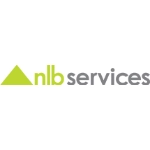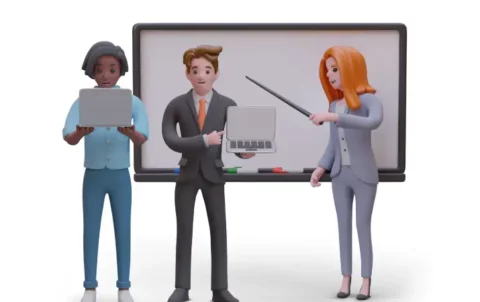© 2025 Next Level Business Services Inc. All Rights Reserved.
What Not to Say in a Job Interview
By NLB Services
As a job seeker having a strong professional background and high educational accolades can definitely help you stand out in the eyes of the employer. But your words and how you communicate can equally influence their decision to hire you. With words having a profound effect on how one is perceived, as a potential candidate, you need to be all the more mindful to communicate in a way that showcases you have the right set of skills and a determined personality to drive an organization to greater heights of success. In this comprehensive blog, we will closely look at specific phrases or responses that candidates should avoid during an interview. For instance, talking poorly of your previous employer or bragging about your achievements while discrediting others around can surely put off the employer. By understanding what not to say in an interview, you will gain valuable insights and learn how to navigate the process confidently.
Offensive or Discriminatory Language
As a prospective candidate, it’s imperative to avoid using any form of discriminatory or offensive language that can negatively affect your chances of landing the job you’ve been vying for. It is of utmost importance to show respect for individuals regardless of their gender, religion, age, race, or any other characteristic. For instance, strictly keep away from making remarks on someone’s age or assuming their capabilities based on a specific gender or race. You should rather focus on your abilities as a great fit for the organization emphasizing your collaborative and cooperative spirit. By taking an all-inclusive approach to your communication, you can showcase your zest as a team player for equality in the workplace. Similarly, candidates should refrain from passing any personal comments or lewd remarks on someone’s appearance, relationship status, religious beliefs, or anything that can be remotely offensive or hurtful. By showing respect and consideration for others, you establish yourself highly in the eyes of the employer, showing your commitment to a positive work culture.
Negative Comments about Previous Employers or Experiences
During a job interview, an employer is not only looking for a skilled employee but also an individual who values commitment, loyalty, and strong life principles. “Why did you leave your last job?” or “Why are you looking for a new job?” are inevitable questions in any interview. They reflect the intention and ambition of the job-seeking employee. One should be careful not to criticize the past job excessively in response to this. It can potentially question your commitment towards the job you had or make you look ungrateful for what you’ve learned – be it good or bad. Ultimately, it is vital to think from the employers’ point of view, that is one employee’s opinion or work experience cannot question the entire organization’s status. Similarly, complaining about past co-workers can also be detrimental to the probability of you succeeding at the job as it can put your teamwork and social skills in jeopardy. Therefore, it is safest to adhere to positive responses such as “I am ready for a career progression in life,” “My last job helped me develop skills to widen my employment horizons”, or “My last job reached its threshold of what it could offer me and vice versa”. At the same time, it is also essential to express within limits. Delving into expansive details can portray you as an individual who is not in control of their thoughts or does not know how to articulate his or her thoughts well. Especially if it is about your last job, then excessively venting can give the impression that you do not cope well under stressful or unfavorable situations. This is not an ideal characteristic an employer would seek in an employee.
On the other hand, not revealing enough information or details can make you appear unaware, uncommitted, or uninterested. It can be negatively associated with your contribution to your last job or project in hand. To say the right amount in the right tone is crucial to your responses in an interview. The excitement to overshare and the lack of interest to share enough – both need to be moderated and executed skillfully. The most appreciated responses in an interview are those that speak about your credibility based on your merit and not decorating others’ shortcomings. The interviewer is more interested in what value addition you can bring to the job than where your last employment experience lacked.
Lack of Preparation or Engagement
Employers have often observed that the interviewees either do not have any questions about the job or they have far too many. The latter is rapidly growing momentum wherein asking irrelevant or obvious questions puts off the employers the most and projects you as an overly enthusiastic or largely unaware candidate for the job. For instance, do not be quick to ask about the kind of bonus or benefit you would be eligible for after you reach a certain sales milestone. Such optimistic and futuristic questions are likely to be translated by the employer as you being far from reality or overconfident.
Similarly, an interview is the last place where you should seek answers to basic questions such as what the company does, who the clientele is, what kind of responsibilities your employment will demand, etc. For instance, if the company deals in multiple products/services, be careful not to ask a question about a product/service that is not part of the company’s portfolio. Such information is available well in advance, either through the company’s website and other online platforms or job advertisements. Make sure to do your research beforehand. The most help in asking the right questions comes from listening to the information given to you or asked of you. Make sure you are not interrupting the interviewer, even if you know what he or she is going to say or is asking from you. Let them complete their question, take a moment to fathom what has been asked of you, and then answer! If you cannot sit through listening to your potential superiors in one conversation, they will perceive that you are unlikely to follow instructions daily. In the end, let your work speak more than your words, and be patient only to cross a bridge when you must.
Overconfidence or Arrogance
Confidence matters when it comes to a job interview- not only for the candidate but also because interviewers love to see it. But how much is too much? Balancing confidence with humility is key to a good job interview. Exhibiting modesty indicates that the candidate is self-aware and ready for the given role. Overconfidence can be seen in the form of bragging and exaggeration. It is true that teamwork is vital in the functioning of an organization, making it necessary for employers to be aware of candidates who are constantly talking about themselves and their contributions. Increasingly using words like ‘I’, ‘me’, or ‘my’ are reflective of first-hand experiences rather than ‘they’ and ‘we’ and suggest that the candidate is more inclined to talk about themselves instead of team contributions.
Research suggests that one of the most common things candidates exaggerate is their experience with a given skill. However, one should avoid going overboard when highlighting their achievements since skills can be assessed during an interview or through questionnaires, uncovering the authenticity of the information provided. Sometimes when the candidate is caught off-guard, they tend to become defensive and start disregarding or critiquing the person or company that made them uncomfortable. This projects a negative attitude towards the company and employees and should be completely avoided. If asked how you can compare yourself to other candidates, refrain from making comparisons by all means. As in fear of competition, candidates often tend to talk down about other employees’ abilities and contributions. Instead, they should graciously acknowledge that all candidates are valuable assets for the organization and then pivot to discuss their skills and showcase the strengths mentioned in their resumes.
Inappropriate or Unprofessional Language
Avoid using any form of swear words, as these would only hurt, not help, your chances of getting your dream job. As candidates get comfortable during the interview, they might start talking to the interviewer as a friend putting their guard down and coming off as immature and unprofessional. The use of swear words reflects poor judgment and lack of filter, making you look rather rude and leaving a negative impression on the employer. It’s okay to be comfortable in an interview, but it should be noted that an interview is not a casual conversation between two friends. After all, you are interviewing to become a representative of the company based on your professionalism. A negative first impression would lead to the assumption that you would be worse upon joining the organization taking the opportunity away from your hands. In fact, it’s imperative to lose the slang if you intend to come across as a polished and sophisticated individual. Lastly, use of jargon should be avoided as you can’t expect the interviewer to dig out their urban dictionary to be able to understand what you’re saying. You want to show the employer that you are ambitious and driven, exhibiting that you can take on the job given to you with utmost professionalism.
Conclusion
Regardless of how highly your resume speaks of you, the way you conduct yourself and communicate during an interview can be the deciding factor for your selection. By closely considering what not to say in an interview with the tips we have enlisted, you can be sure to showcase your true potential and establish yourself as an exceptional candidate. Moreover, with the examples we have provided, you can get clarity on how to leave a lasting impression, straying away from any form of comments or remarks that can be detrimental to your career growth.
Talent Solutions








